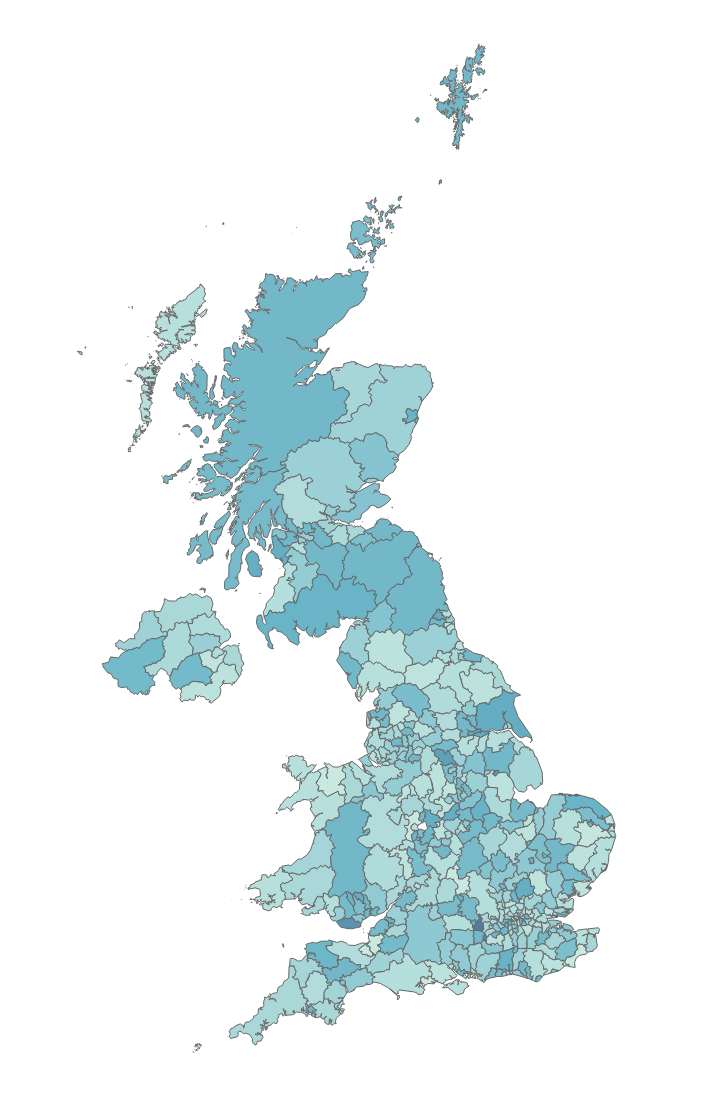Survey of elected councillors highlights significant concern about local capacity to cope with the ongoing impacts of the cost living crisis
4 out of 5 councillors say children are at risk of destitution in their area as services struggle to cope with sustained pressures

New research highlights widespread concern amongst local councillors about the impact of the cost of living crisis in their local communities.
The research, conducted by the University of York’s Cost of Living Group, shows 80% of elected councillors believe children in low income families are at risk of destitution.
Local councillors also expressed significant concern about the capacity of local councils and public services to respond to the crisis, with 70% fearing that health and social care services lack sufficient resources to cope with current pressures.
The survey highlights concerns about longer term impact on local economies, three-quarters of councillors agreeing small local retailers in their area are at risk of closing due to the rising cost of living and almost 80% highlighting a risk to local pubs, cafes, and restaurants.
There were some damning assessments of the Westminster government’s response, with just 1 in 5 local councillors agreeing the government's Autumn Statement will equip their local authority to respond to the ongoing challenges it faces. Councillors judged supermarkets to have made a more effective response to the cost of living crisis in their local area than Rishi Sunak’s government.
The research identified significant policy innovation at local level as councils have responded to the crisis, examples of new services including cost of living funds, ‘warm banks’ and dedicated cost of living advice web pages. But the research highlights widespread concerns about the capacity of local councils to weather ongoing storms following successive crises, three-quarters of local councillors saying their local authority would not be well equipped to respond to another financial shock in the future.
Several local authorities have declared a cost of living emergency in response to current pressures and a number have established cost of living task forces or commissions as they grapple with the challenges of navigating a crisis that has increased demand for their services at a time when their own budgets are under sustained pressure.
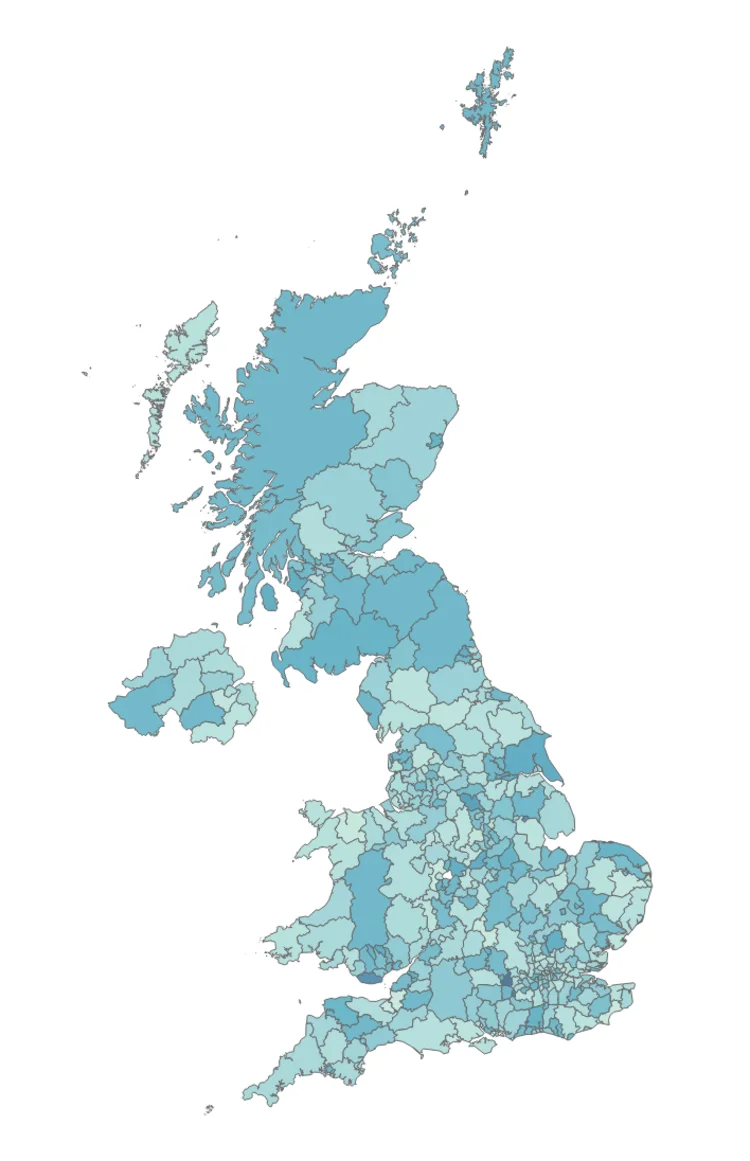
Local Impacts

The research found a significant proportion of local councillors had concerns about some groups in their local authority facing destitution - defined as circumstances in which someone does not have the essentials necessary to eat, stay warm and dry, and keep clean - due to the rising cost of living.
80% agreed this was the case for children in low income families in their area, just over 70% did so in relation to people in receipt of unemployment or disability benefits and around two-thirds in relation to pensioners.
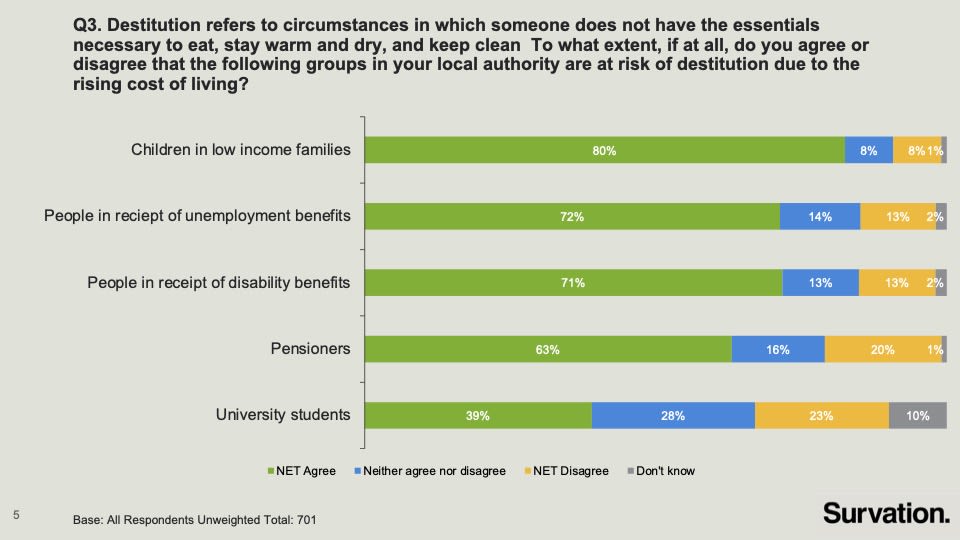
Councillors also expressed concern about the impact of the rising cost of living on local businesses and services. Around three-quarters agreed small local retailers or local pubs, cafes and restaurants were at risk of closure. Around half felt leisure and sports facilities or hotels and B&Bs were at risk, with 40% seeing risks for hairdressers and salons.
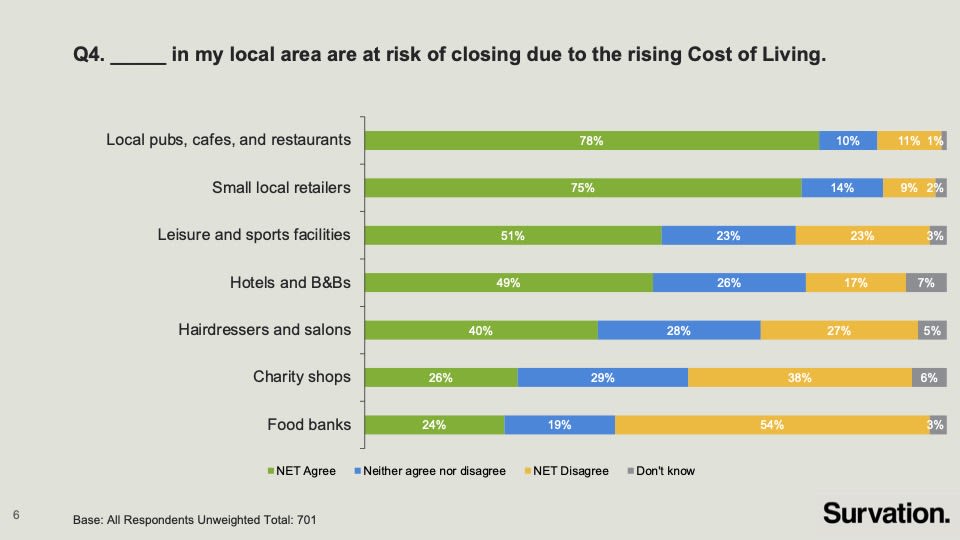
Responses to the response

Local councillors were asked about the effectiveness of organisational responses to the crisis. While over three-quarters of surveyed councillors identified charities and community organisations as providing effective cost of living responses in their local area, only 30% agreed that the Westminster government had provided effective support.
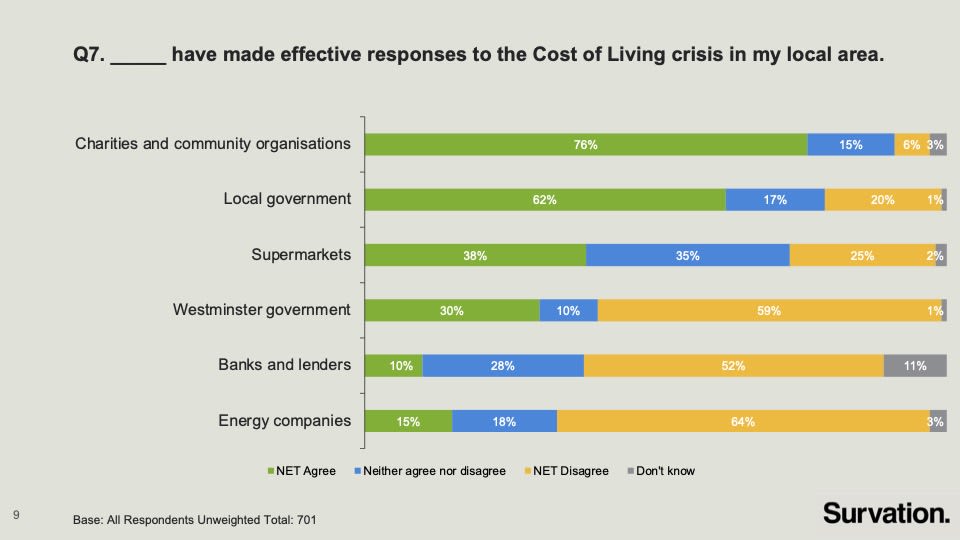
The research team also undertook a systematic review of local authority websites. This revealed that many had joined with community organisations such as Citizens Advice and local foodbanks to distribute cost of living support. Others had extended or repurposed local partnerships borne out of the Covid-19 crisis to tackle these new challenges.
While most had created dedicated cost of living information and advice pages for their residents, a small minority had not even provided basic information pages. Moreover, while councillors expressed widespread concern about the impact of the cost of living crisis on local businesses, only around 1 in 5 of the local authority sites sampled signposted business support.
Capacity to Respond

We asked councillors to tell us how they perceived local services' ability to respond to the rising cost of living. The majority identified schools, emergency services, housing providers and health and social care services as lacking sufficient resources to cope with the pressures they faced. The picture was particularly stark for health and social care services, where only 1 in 5 councillors said these services had sufficient resources to cope with current pressures.
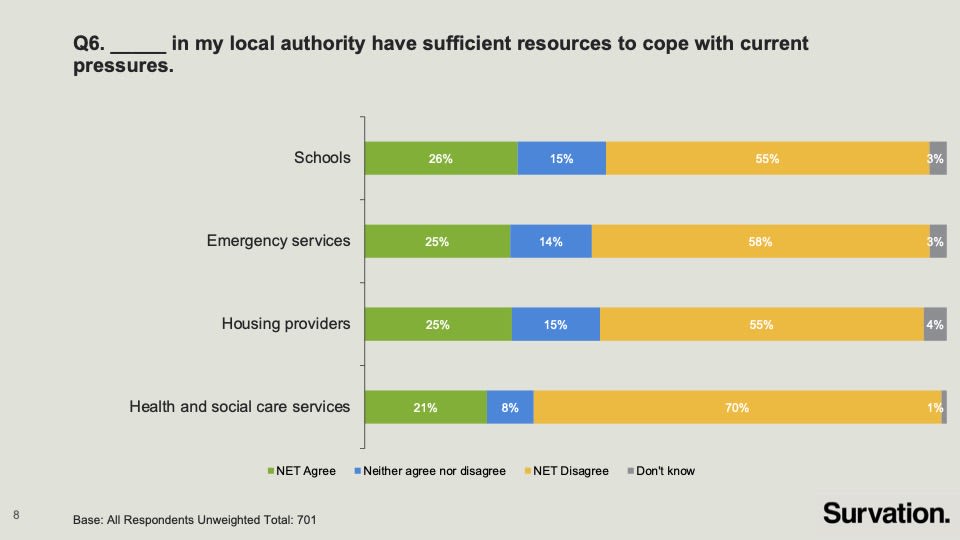
The experience of the COVID-19 pandemic and the rising cost of living meant nearly three-quarters of councillors were of the view that their local authority would not be well equipped to respond to another financial shock in the future.
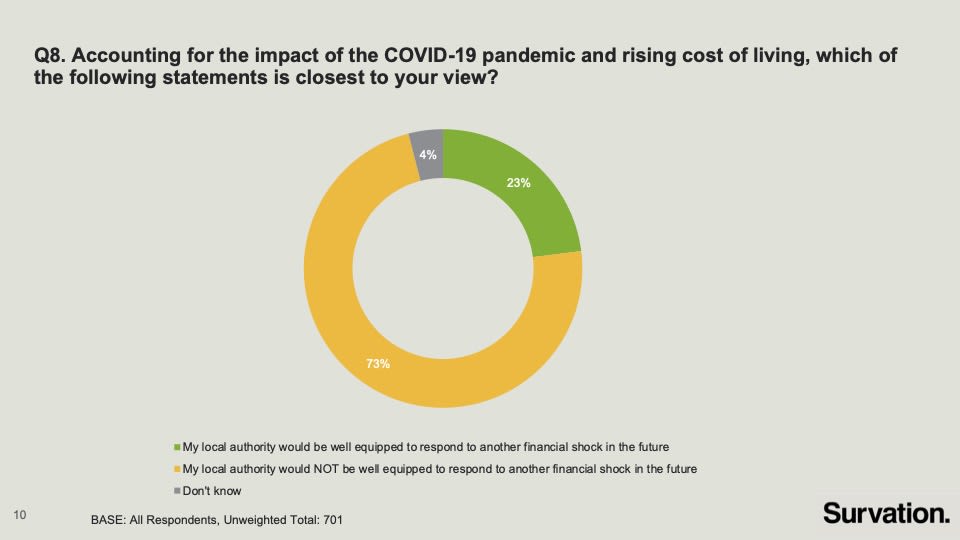
Similarly, the UK Government's Autumn Statement has done little to instil Councillor confidence. 70% of councillors said the mini-budget did not equip their local authority to respond to the ongoing challenges.
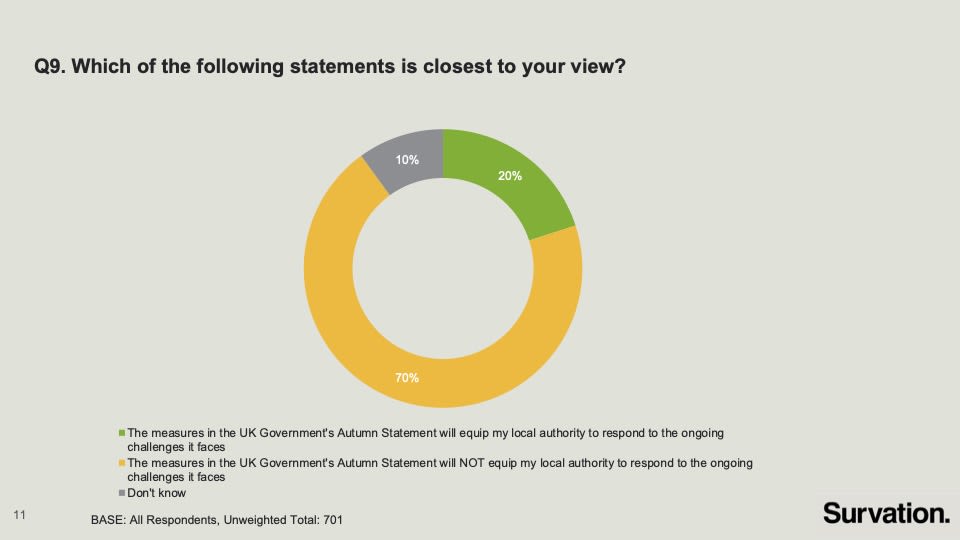
Project Details
The findings reported here relate to research conducted by the University of York Cost of Living Research Group’s LOcale Authorities and the Cost of Living Emergency (LOCALE) project. The LOCALE project is funded by Research England Policy Support Fund. The project is led by Kit Colliver, John Hudson and Neil Lunt from the School for Business and Society. The project was reviewed by the SPSW Ethics Committee, University of York (approval SPSW/S/22/15). A fuller report on the research findings summarised here will be available soon from the Cost of Living Research Group website.
The survey of local councillors was conducted for the LOCALE project by Survation. Between 23rd December 2022 - 11th January 2023, Survation interviewed 701 elected members of local councils in the UK via online panel. Data were weighted to the profile of elected councillors in the UK. Data were weighted by political party and region. Demographic targets for the weighted data were derived from Open Council Data UK. Because only a sample of the full population was interviewed, all results are subject to margin of error, meaning that not all differences are statistically significant.


